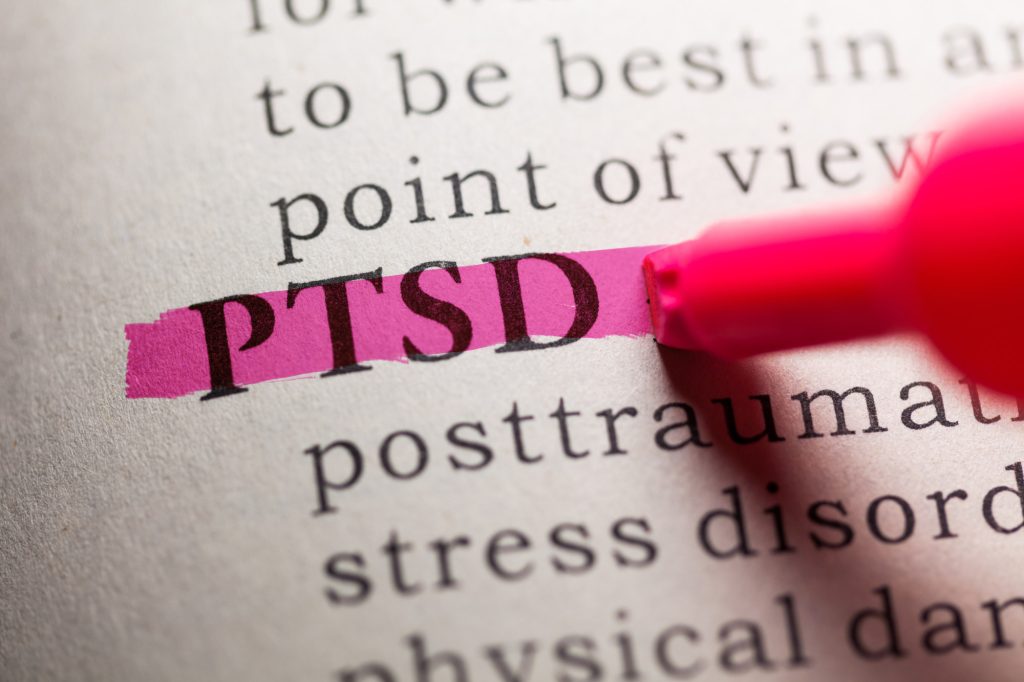Post-traumatic stress disorder is something that can affect any individual. Regardless of circumstance, job title, physical fitness, or emotional toughness, any person can experience trauma and suffer symptoms of PTSD.

It’s a difficult thing to try and come out of, too, because the PTSD symptoms are wrapped up in experiences and memories that you’d rather not revisit. Those memories can be murky, warped, and difficult to drudge up as well.
We’re going to take a look at this disorder today, giving you some insights into why it happens, options for mental trauma treatment, and other factors of trauma therapy that might be helpful to you.
Let’s get started.

Post-traumatic stress disorder is classified as an acute distress disorder. It’s caused by exposure to a traumatic event of some kind.
The event doesn’t have to fit into any set of specifications or categories to be considered “traumatic”. In many cases, a period of a person’s life is generally traumatic enough to leave them with PTSD. In other cases, there is one particular moment or memory that stands out as the key issue.
In moments of trauma, our fight-or-flight response tends to kick in. We feel that we’re in danger or the emotional weight of the situation overcomes us, and our lower brain starts to take control. While the fight or flight response is there to help us, it’s not always the answer in traumatic situations.
What we’re left with is an accelerated heart rate, a stimulated nervous system, stress that exceeds anything we normally experience, and exposure to a situation that damages our psyche. All at once, that’s a lot to process and move on from.
Those factors might weave together in unique ways as well. The experience of trauma is a uniquely subjective one, and the pain one experiences in those moments tends to be unspeakable. It’s impossible to get an exact sense of what another person experiences in trauma.
After the traumatic event, the individual might be disoriented or have difficulty processing what has happened to them. Alternatively, they might subdue the thoughts and emotions and attempt to continue on with life as normal.
Everyone deals with trauma in their own way, so it’s impossible to give a one-size-fits-all description of the moments after an experience like that. The line that ties PTSD sufferers together, though, is that the experience comes back in response to triggers.
Triggers are stimuli that spark the memory of the traumatic event [1].
“You might see the individual who harmed you, hear the song that was playing as you experienced trauma, start thinking about that period of your life, or something else might happen to produce that memory.”
In some cases, the person doesn’t need to experience similar stimuli to be triggered. The brain just produces those memories for no apparent reason.
When triggered, a person will start to have the same physiological response that they had when the trauma occurred. This is called a trauma response, and it can be debilitating. The individual’s fight or flight will kick in, their thoughts become frantic, and they’re left terrified.
That experience can occur in the grocery store, lying in bed, on a walk with a friend, or at any time.

Those experiencing PTSD might have a number of challenges. Personal relationships can be hard to maintain when triggers are coming up on a regular basis.
In a state of fear, the person might start to act out in different ways that they have no control over. Holding a job might be difficult as well.
Most importantly, the person suffers. They relive the trauma whenever they’re triggered, and the experience of the trauma response might not be much better than the actual experience itself. This has a significant impact on the individual’s wellbeing and sense of self.
The experiences combined with the difficulty of functioning in life make things very hard. That sets the stage for co-occurring disorders to start presenting themselves. It’s not uncommon for depression and anxiety to manifest alongside PTSD.
The symptoms of PTSD in the UK are by no means uniform, either. It’s an abstract disorder, and the experiences of those suffering from it are as unique as the people themselves. That said, there are effective means of post-traumatic stress disorder treatment.

The UK PTSD treatment options are out there, and they’re effective at working through the experiences that the individual is having. If you’re wondering where to get help for post-traumatic stress disorder, we have resources for you to explore.
Treatment for PTSD can be comprehensive if you want it to be, and there are methods of treating all aspects of the illness. If you’re experiencing PTSD that you feel needs to be treated right away, inpatient treatment options might be the most effective for you.
“You’re given the chance to heal and work on the following aspects of PTSD.”
Inpatient programs allow an individual to work through their symptoms in the comfort of an environment that’s conducive to therapy. You’ll have little chance of being exposed to triggers, experiencing the trauma response, or suffering further damage by people or things in your normal life.
Talk therapy of some kind tends to be the cornerstone of PTSD therapy. The root of the issue lies in our perception of the traumatic experience.
The brain has logged that experience with extreme significance, and there’s a little glitch in the memory that forces it to pop up time and time again.
We can demystify and shift that memory into a healthy place through the process of talk therapy. We often shy away from those memories and do our best to ignore them because they include so much pain.
Breaking your experiences down systematically with a professional helps a great deal in strengthening your response to the traumatic event and its corresponding memory.
It’s difficult to say how your counselling journey will go because everyone is different, but there’s a pattern of success in individuals who go to counselling for PTSD help.
The idea that mental illness is only a “chemical imbalance” is one that’s been proven wrong time and time again. That said, there are very real connections between your levels of neurotransmitters and the way that your brain functions.
The management of memory, the experience of emotions [2], the ability to change, and a number of other things are dictated by neurotransmitters. PTSD might lead to an imbalance of various neurotransmitters that contribute to different symptoms of mental illness.
Mental illness is a network of experiences, feelings, neurotransmitters, and many other things, but the foundation is laid by those biochemical balances.
Working with a psychiatrist to figure out exactly where things are going wrong can give you some insight into why you’re feeling the way you are. Further, PTSD medication in the UK can bring things back into the normal range.
Once your brain has the right balance of chemicals working, it’s easier to manage and unpack emotions in the way that you need to.
Many people with the disorder turn to alcohol to avoid events that continue to disturb their lives. But, using alcohol to deaden emotions and events can make someone exposed to doing things that can put their health and well-being at risk. Alcohol can make stress and memories more difficult to deal with in the long term.
One common symptom of PTSD is the feeling of disconnection from one’s body. That feeling is established by the traumatic event itself in a lot of cases, but the fact that the fight or flight response [3] hijacks one’s being so often can lead to some dissociation from the body.
It might start to feel as though your body isn’t your own or that you don’t have the same sensation of embodiment that you once did.
Practices like yoga or relaxation techniques geared toward PTSD treatment can help to re-establish that connection. PTSD recovery is possible through these methods.
Stress disorder treatment might seem like it’s hard to find in The United Kingdom. In reality, there are a lot of treatment centres for you to explore as you seek help for the experiences you’re having.
PTSD trauma therapy is something that a lot of people need, and there are a lot of post-traumatic stress treatment options that can meet that need. Whether you need PTSD residential treatment or you think that post-traumatic stress treatment centres would be a better fit for you, there are options.
We’re here to help you find post-traumatic stress treatment centres if you’re having trouble finding one that suits you. Know that you’re not alone in your struggle.
Millions of people in The UK and abroad experience symptoms of PTSD every day. Everyone’s symptoms and experiences are different, though, so it’s important to give yourself permission to get help if you feel that you need it.
Struggling with these feelings alone is very challenging, and there are people who are ready to help when you feel ready.
Post-traumatic stress disorder is complex and difficult to understand, especially when it’s happening to you. It’s treatable, though, and many people make progress with their symptoms every day.
If you’re looking for UK PTSD treatment, we’re here to help. Contact us to set up a consultation and see what we offer in terms of treatment.
Sources